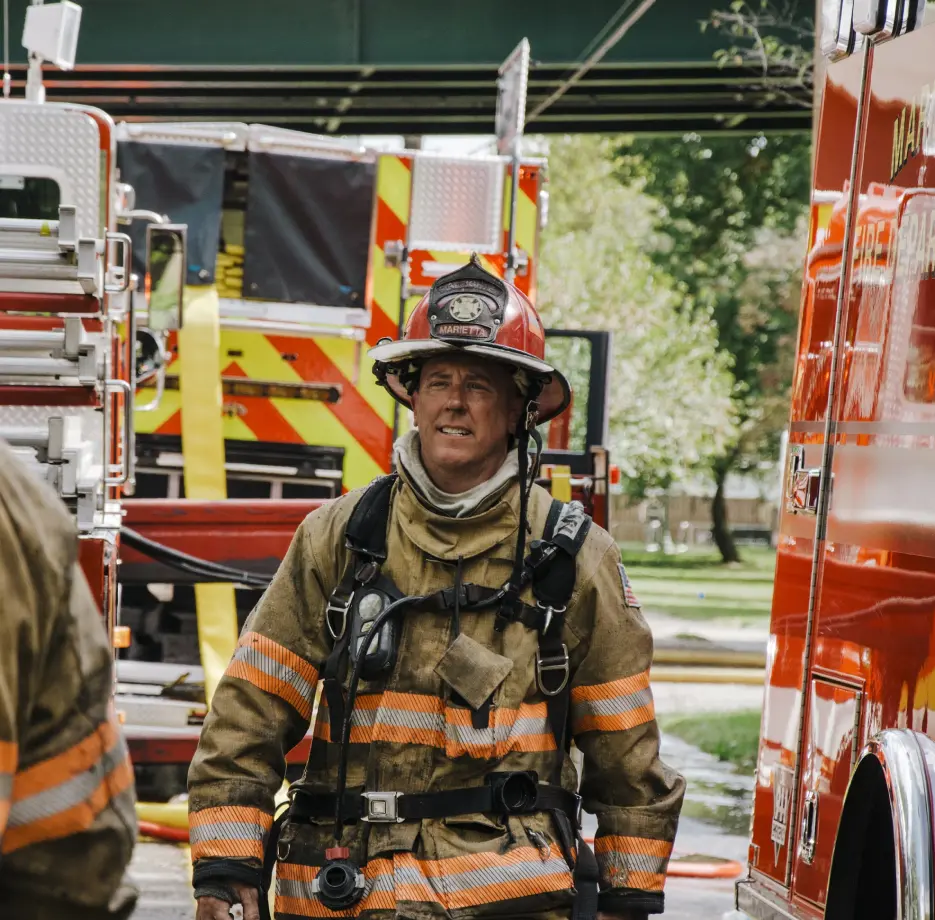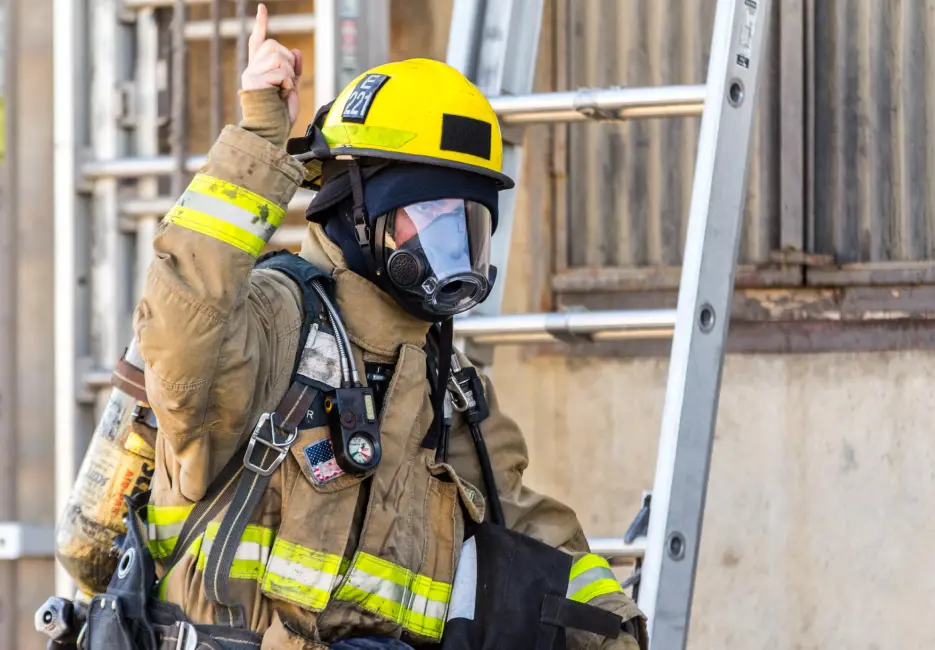First responders and emergency response workers are regularly involved in high-stress, dangerous, and traumatic situations.
While on the job, they may have to deal with:
As a result, first responders are at increased risk for developing symptoms of post-traumatic stress injury, depression, anxiety, alcohol or substance use problems, and suicidal ideation. The strain of their job can also impact their relationships and quality of life.
Yet, many first responders hesitate to talk about their reactions and feelings. They may try to minimize how they feel, believe that they should be able to handle it on their own, or think it’s a sign of weakness to seek help. As a result, they may not seek out behavioral health treatment.
Having a trained peer support team with clinical integration can provide frontline workers with another option to get the behavioral health support and care they need.


Research shows that peer support teams for first responders are an effective strategy to help support emergency response workers.
Some benefits of a municipal peer support team include:
A peer support team consists of first responders (peers) trained to evaluate, support, and provide assistance to individuals in your department.
Peer supporters can be easier for some employees to talk to initially because they share similar work experiences and understand the strain a first responder job can have on a person’s emotional health and life.
Peer support can involve different activities depending on your department’s needs and situation. For instance, peer support can be used to help with crisis intervention after a critical incident or be available any time a responder is struggling.
Peer supporters need to be trained in basic mental health practices. Additionally, there are typically ongoing training and supervision requirements that may vary based on your location.
While effective, it can be hard for departments to build and maintain a peer support team, especially in smaller areas.
Some barriers to creating and maintaining a municipal peer support team include:
Our licensed experts have professional and personal insights into how a critical incident can impact responders. We’ve worked with first responders and emergency response agencies in Maine since 2015 and follow national best practices and standards. Our licensed therapists are culturally competent, and Sarah Mildrum, LCSW, is an Emergency Responder and Public Safety Certified Clinician.
We have specialized training and experience helping departments build and maintain their peer support teams. We are able to provide the initial and ongoing trainings your peer supporters need and be a resource they can turn to when they need assistance.
We provide clinical integration into peer support teams using the National Emergency Responder and Public Safety Center’s model and certification. Our clinicians will work with peer support team members to reinforce concepts learned in training sessions and provide guidance in real-world applications.
A peer support team can be an effective strategy to improve the emotional health and quality of life of your department’s employees. Our licensed therapists are here to assist your peer support team.
A peer support team can be an effective strategy to improve the emotional health and quality of life of your department’s employees. Our licensed therapists are here to assist your peer support team.
Click on the button below to schedule an appointment with Guiding Light Counseling